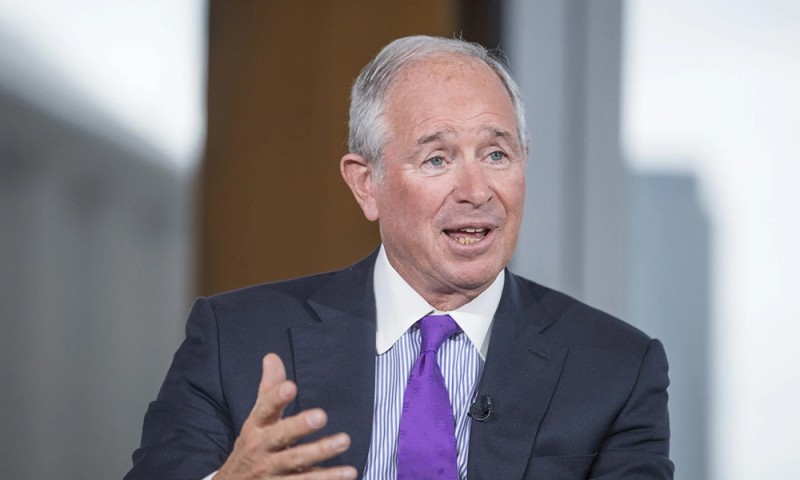
无论攀上多高的职场巅峰,或赚得多少财富,每一位企业领袖终究都是凡人。即便掌舵世界顶尖的大型企业,他们也难免会犯错。以黑石集团(Blackstone)联合创始人兼首席执行官苏世民为例,他曾坦言,上世纪八十年代中期在与Edgcomb Steel的一桩重大交易中失利,几乎让他落泪。
苏世民近日在黑石集团的“人生启示”系列访谈中回忆道:“那是公司历史上的第三笔投资……当时我从未做过投资,甚至不知道还有‘投资委员会’这种东西。我犯了一个错误,结果几乎亏光了全部本金。”
在这场代价高昂的失误之后,一位投资人把他叫到一旁,进行了一次谈话。这次会面让他铭记了整整半个世纪。
苏世民继续回忆道:“我刚坐下来,他便开始对我大吼大叫……我当时震惊极了。但我随后对他说:‘你骂得完全有道理。’亏掉的是他的钱,而我负有责任。场面极其难堪,我几乎要当场哭出来。但我强忍住情绪,告诉自己:‘我必须咬牙承受这些责骂。’”
这次事件后不久,黑石集团损失了其在Edgcomb的全部股权。这次打击成了苏世民职业生涯的分水岭。正如他所说,客户与一家管理着1,900亿美元资产的公司合作,“自然期望看到好结果”,而他却让人大失所望。苏世民对这次失误极为自责。黑石是他一手创立的公司,他当年辞去雷曼兄弟(Lehman Brothers)的高管职位,以40万美元起家。而面对这段“痛苦又灰暗的经历”,他没有沉溺于懊悔,而是选择重新出发。他走出办公室,在秋叶纷落、阳光映水的街头独自散步,一边反思,一边自我开解。此后数十年间,苏世民带领黑石成长为全球资产管理巨头,也将个人财富积累至526亿美元,成为白手起家的亿万富翁。
苏世民谈到:“我当时对自己说:‘这种事绝不能再发生。’”此后,黑石彻底重塑了所有内部流程,对每一笔复杂交易都进行严格而充分的讨论。“挫折固然痛苦,但同时也是最好的老师。”
从杰夫·贝佐斯到萨姆·奥尔特曼:承认错误,重新上路
对任何渴望闯出一番事业的企业家而言,犯下价值数百万甚至数十亿美元的错误,几乎是成长的必经之路。
即便是最成功的商业领袖,也不讳言自己的失误。十多年前,亚马逊(Amazon)创始人杰夫·贝佐斯就坦承,公司当时推出手机产品“为时尚早”。那时这家如今市值达2.4万亿美元的科技巨头,正试图改进其首个不尽如人意的手机项目。这一错误让人记忆犹新,而亚马逊至今未能在智能手机市场中占据一席之地。多年来,亚马逊的其他尝试也屡遭挫折,其中包括一个历经多次改版却始终未能成功的拍卖网站。
贝佐斯在2014年的《商业内幕》Ignition大会上表示:“我在亚马逊犯下过价值数十亿美元的错误。真的有数十亿美元……那些不能接纳失败、停止尝试的公司,最终都会陷入绝境,只能在企业生命的尽头孤注一掷。”
即便是当今的科技先锋,也并非事事完美。OpenAI首席执行官萨姆·奥尔特曼,因推出21世纪最具影响力的科技产品之一ChatGPT而广为人知。这款人工智能聊天机器人火爆全球,周活跃用户高达8亿,每分钟处理达60亿个词元。在GPT-4模型大获成功后,公司决定进一步加码,推出性能更强的新版本GPT-5。然而,这次发布远非一场创新的狂飙盛宴。上线过程问题频出,OpenAI不得不重新开放GPT-4供用户选择,以便修复故障、平息混乱。
据《The Verge》报道,奥尔特曼在8月坦言:“我认为我们的新版本发布犯了一些严重错误。我们从中得到了一个教训,那就是在一天之内为上亿用户升级产品意味着什么。”
有些错误代价极为高昂。市值达1,900亿美元的金融科技公司财捷集团(Intuit)前首席执行官布拉德·史密斯,曾因“深信自己押对了宝”而犯下一个价值4,000万美元的错误。他全力押注一个全新的电商业务模式,并说服董事会分两次各投资2,000万美元来推动项目落地。然而,这笔巨额投入最终仅换来18笔交易,平均每单售价约1,500美元,总收入只有区区2.7万美元。史密斯当时以为自己肯定会被解雇,但最终,他从那次惨痛的失败中汲取了教训,并凭此智慧领导公司长达十年。
史密斯在2015年为《财富》撰文回忆道:“我脑子里唯一的念头就是‘我肯定要被炒了’。我决定承担自己犯下的错误……可以想象,那场会议一点都不愉快。然而,会后有一位董事把我叫到一旁,给了一句让我至今难忘的忠告……他看着我的眼睛,对我说:‘我宁愿看到因热情犯下的错误,也不愿看到理智之下的冷漠。’”(*)
译者:郝秀
审校:汪皓
无论攀上多高的职场巅峰,或赚得多少财富,每一位企业领袖终究都是凡人。即便掌舵世界顶尖的大型企业,他们也难免会犯错。以黑石集团(Blackstone)联合创始人兼首席执行官苏世民为例,他曾坦言,上世纪八十年代中期在与Edgcomb Steel的一桩重大交易中失利,几乎让他落泪。
苏世民近日在黑石集团的“人生启示”系列访谈中回忆道:“那是公司历史上的第三笔投资……当时我从未做过投资,甚至不知道还有‘投资委员会’这种东西。我犯了一个错误,结果几乎亏光了全部本金。”
在这场代价高昂的失误之后,一位投资人把他叫到一旁,进行了一次谈话。这次会面让他铭记了整整半个世纪。
苏世民继续回忆道:“我刚坐下来,他便开始对我大吼大叫……我当时震惊极了。但我随后对他说:‘你骂得完全有道理。’亏掉的是他的钱,而我负有责任。场面极其难堪,我几乎要当场哭出来。但我强忍住情绪,告诉自己:‘我必须咬牙承受这些责骂。’”
这次事件后不久,黑石集团损失了其在Edgcomb的全部股权。这次打击成了苏世民职业生涯的分水岭。正如他所说,客户与一家管理着1,900亿美元资产的公司合作,“自然期望看到好结果”,而他却让人大失所望。苏世民对这次失误极为自责。黑石是他一手创立的公司,他当年辞去雷曼兄弟(Lehman Brothers)的高管职位,以40万美元起家。而面对这段“痛苦又灰暗的经历”,他没有沉溺于懊悔,而是选择重新出发。他走出办公室,在秋叶纷落、阳光映水的街头独自散步,一边反思,一边自我开解。此后数十年间,苏世民带领黑石成长为全球资产管理巨头,也将个人财富积累至526亿美元,成为白手起家的亿万富翁。
苏世民谈到:“我当时对自己说:‘这种事绝不能再发生。’”此后,黑石彻底重塑了所有内部流程,对每一笔复杂交易都进行严格而充分的讨论。“挫折固然痛苦,但同时也是最好的老师。”
从杰夫·贝佐斯到萨姆·奥尔特曼:承认错误,重新上路
对任何渴望闯出一番事业的企业家而言,犯下价值数百万甚至数十亿美元的错误,几乎是成长的必经之路。
即便是最成功的商业领袖,也不讳言自己的失误。十多年前,亚马逊(Amazon)创始人杰夫·贝佐斯就坦承,公司当时推出手机产品“为时尚早”。那时这家如今市值达2.4万亿美元的科技巨头,正试图改进其首个不尽如人意的手机项目。这一错误让人记忆犹新,而亚马逊至今未能在智能手机市场中占据一席之地。多年来,亚马逊的其他尝试也屡遭挫折,其中包括一个历经多次改版却始终未能成功的拍卖网站。
贝佐斯在2014年的《商业内幕》Ignition大会上表示:“我在亚马逊犯下过价值数十亿美元的错误。真的有数十亿美元……那些不能接纳失败、停止尝试的公司,最终都会陷入绝境,只能在企业生命的尽头孤注一掷。”
即便是当今的科技先锋,也并非事事完美。OpenAI首席执行官萨姆·奥尔特曼,因推出21世纪最具影响力的科技产品之一ChatGPT而广为人知。这款人工智能聊天机器人火爆全球,周活跃用户高达8亿,每分钟处理达60亿个词元。在GPT-4模型大获成功后,公司决定进一步加码,推出性能更强的新版本GPT-5。然而,这次发布远非一场创新的狂飙盛宴。上线过程问题频出,OpenAI不得不重新开放GPT-4供用户选择,以便修复故障、平息混乱。
据《The Verge》报道,奥尔特曼在8月坦言:“我认为我们的新版本发布犯了一些严重错误。我们从中得到了一个教训,那就是在一天之内为上亿用户升级产品意味着什么。”
有些错误代价极为高昂。市值达1,900亿美元的金融科技公司财捷集团(Intuit)前首席执行官布拉德·史密斯,曾因“深信自己押对了宝”而犯下一个价值4,000万美元的错误。他全力押注一个全新的电商业务模式,并说服董事会分两次各投资2,000万美元来推动项目落地。然而,这笔巨额投入最终仅换来18笔交易,平均每单售价约1,500美元,总收入只有区区2.7万美元。史密斯当时以为自己肯定会被解雇,但最终,他从那次惨痛的失败中汲取了教训,并凭此智慧领导公司长达十年。
史密斯在2015年为《财富》撰文回忆道:“我脑子里唯一的念头就是‘我肯定要被炒了’。我决定承担自己犯下的错误……可以想象,那场会议一点都不愉快。然而,会后有一位董事把我叫到一旁,给了一句让我至今难忘的忠告……他看着我的眼睛,对我说:‘我宁愿看到因热情犯下的错误,也不愿看到理智之下的冷漠。’”(*)
译者:郝秀
审校:汪皓
No matter how high someone climbs the corporate ladder or how many millions they earn, every business leader is still human. They’re bound to stumble and make mistakes—even when steering some of the world’s largest companies. Blackstone cofounder and CEO Stephen A. Schwarzman, for instance, once admitted he was nearly brought to tears after flubbing a major deal with Edgcomb Steel in the mid-1980s.
“It was the third investment in the firm’s history…I had never made investments. And I didn’t even know there were things like investment committees,” Schwarzman recently recalled in Blackstone’s “Life Lessons” series. “I made a mistake, and we basically lost our original investment value.”
In the aftermath of the expensive blunder, Schwarzman was quickly pulled aside by an investor. It was a meeting that stuck with him for five decades.
“I sat down, and he started screaming at me…I was shocked,” Schwarzman continued. “But then I said, ‘That’s completely fair.’ It was his money that was lost, and I was responsible. His teeing off on me was horrible, and I almost cried at the meeting. But I sucked it up, and I said, ‘I’ve just got to take these beatings.’”
Blackstone had lost all of its equity in Edgcomb shortly after the incident. It was a career-altering moment—clients “expect good things to happen” when working with the $190 billion business, Schwarzman said, but he had missed the mark. And the cofounder took it personally; Blackstone was his brainchild, scaled up with a $400,000 investment after Schwarzman walked away from a high-powered job at Lehman Brothers. But instead of wallowing in the hurt from the “miserable, grisly experience,” the businessman repositioned himself for success. He took a walk outside, watching fall leaves trickle down and sun bounce off the water, and talked himself through the mess up. In the years since, Schwarzman has become a self-made billionaire, amassing a $52.6 billion fortune in leading the global asset management titan.
“I said, ‘This can never happen again,’” Schwarzman said, adding that Blackstone has since changed all of its processes, and vigorously debates all complex deals. “Setbacks are terrible, but they also are great teachers.”
Jeff Bezos to Sam Altman: owning mistakes and getting on track
Making a mistake worth millions of dollars—or even billions—is a rite of passage for every entrepreneur striving to make waves.
Even the biggest business leaders openly fess up to their faults; over a decade ago, Amazon founder Jeff Bezos said it was still “really early” for the $2.4 trillion tech giant to release a phone, as it tried to improve upon its first fledgling mobile rollout. It was a misstep that seemed to stick, as to this day Amazon still hasn’t broken into the smartphone market. Other Amazon offerings have fallen flat over the years, including an auction site that failed through multiple iterations.
“I’ve made billions of dollars of failures at Amazon.com,” Bezos said in 2014 at the Business Insider Ignition conference. “Literally billions…Companies that don’t embrace failure and continue to experiment eventually get in the desperate position where the only thing they can do is make a Hail Mary bet at the end of their corporate existence.“
Even today’s tech pioneers aren’t doing everything perfectly. OpenAI CEO Sam Altman is known for helming one of the 21st century’s biggest tech products: ChatGPT. It’s an AI chatbot with 800 million weekly active users worldwide, processing 6 billion tokens per minute. Riding the high of its GPT-4 success, the company decided to up the ante with a new-and-improved model, GPT-5. But the rollout was anything but an innovative whirlwind; the launch was so bad that OpenAI was forced to restore access to GPT-4 while the problems got smoothed out.
“I think we totally screwed up some things on the rollout,” Altman admitted in August, according to The Verge. “We’ve learned a lesson about what it means to upgrade a product for hundreds of millions of people in one day.”
Some mistakes come with a hefty price. The former CEO of $190 billion fintech company Intuit, Brad Smith, once made a $40 million error because he was “convinced [he] had a winner.” He went all-in on a new e-commerce business model, convincing Intuit’s board to make two investments of $20 million to get his vision off the ground. But the eye-watering stake only led to 18 sales, averaging out at $1,500 each, surmounting to only $27,000. Smith was sure he was going to get sacked, but wound up learning a bit of wisdom he carried with him leading the business for a decade.
“My only thought was ‘I am going to be fired,’” Smith wrote for Fortune in 2015. “I decided to own my mistake…As you might imagine, it was not a fun meeting. However, one director pulled me aside following the meeting and shared a piece of advice that has stayed with me ever since…He looked me in the eye and said that he ‘preferred the errors of enthusiasm to the indifference of wisdom.’”

